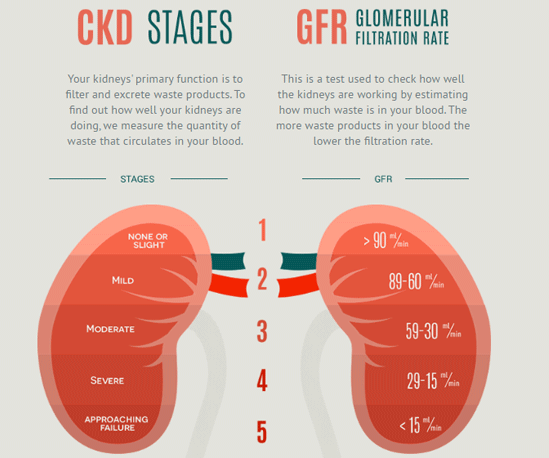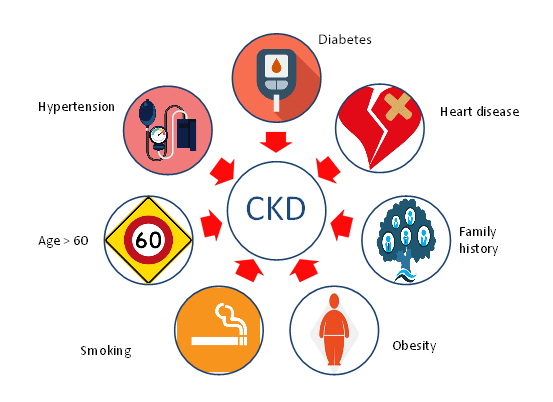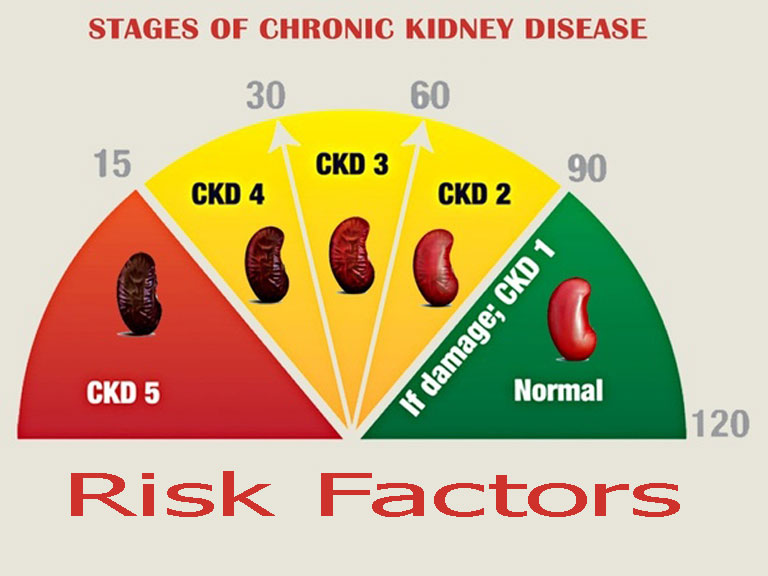About Chronic Kidney Disease
With chronic kidney disease or silent disease, the kidneys don’t usually fail all at once. Instead, kidney disease often progresses slowly over a period of years. This is good news because if CKD is caught early, medicines and lifestyle changes may help slow its progress and keep you feeling your best for as long as possible.
Glomerular Filtration Rate (GFR)
Glomerular filtration rate (GFR) is the best measure of kidney function. The GFR is the number used to figure out a person’s stage of kidney disease. A math formula using the person’s age, race, gender and their serum creatinine is used to calculate a GFR. A doctor will order a blood test to measure the serum creatinine level. Creatinine is a waste product that comes from muscle activity. When kidneys are working well they remove creatinine from the blood. As kidney function slows, blood levels of creatinine rise.
Below shows the five stages of CKD and GFR for each stage:


Risk Factors

Getting tested for chronic kidney disease (CKD)
- If you are at risk, get regular tests to check for early kidney disease. Ask your doctor for blood or urine tests.
- Find it early to take preventative measures to stop kidney disease from progressing.
- If you have diabetes, get tested yearly for presence of kidney disease.



